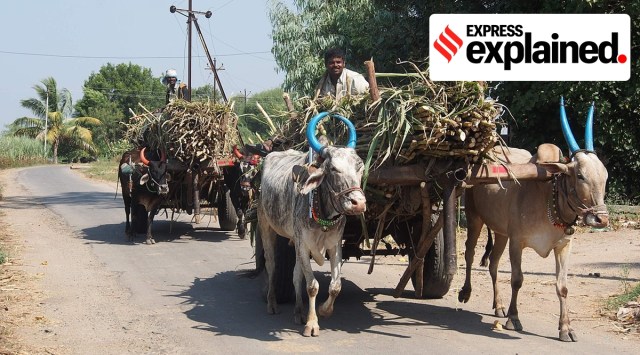As per the ordinance, “non-active” members are those who have not attended a single annual general body meeting or utilised the services of the society for five consecutive years.

While cooperative housing societies and urban cooperative banks have not expressed much concern, the Maharashtra Federation of Cooperative Sugar Factories Ltd has expressed strong reservations about the amendment.
What is the amendment?
Story continues below this ad
The amendment differentiates between “active” and “non active” members of a cooperative society.
An active member, as per the amendment, is “a member who participates in the affairs of the society and utilises the minimum level of services or products of that society, as may be specified in the by-laws”. For a sugar mill, this refers to a member who has sold his sugarcane to the mill, and for an urban cooperative bank, it would translate into someone who partaken in financial transactions with the bank.
As per the amendment, “non active” members are those who have not attended a single annual general body meeting (AGM) or have not utilised the services of the society even once in five consecutive years. Such members would be “expelled” from basic membership, not allowed to vote for the elections of office bearers of the society, or stand for elections themselves.
For a cooperative sugar mill, this amendment means that members who have not sold their cane or have not attended a single AGM for five consecutive years would be have their membership rescinded.
What are the Federation’s objection?
Story continues below this ad
In a letter dated June 9, Jaiprakash Dandegaonkar, director and former president of the Maharashtra Federation of Cooperative Sugar Factories Ltd, expressed his strong objections to the amendment. According to Dandegaonkar, who manages the Purna Cooperative Sugar Mill in Hingoli, this is a retrograde move and will hamper the cornerstone of democratic functioning.
“Cooperative societies are the basic and on ground democratic institutions. Any move to debar membership or strip voting rights would be an attack on such institutions,” he said.
Dandegaonkar reasoned that women members or senior citizens in rural areas are often not able to attend the AGMs . Also representatives from Other Backward Classes (OBC), Scheduled Caste (SC), Scheduled Tribe (ST) are not able to attend at times due to economic reasons.
“Debarring them form voting, or cancelling their membership would stop them from being part of the grassroots level democratic processes. The state government should withdraw this amendment,” he said.
Why are some sugar mills not protesting this move?
Story continues below this ad
Interestingly, Dandegaonkar’s objection has not found much support from millers, especially in border areas of the state. In the districts of Sangli and Kolhapur, both cooperative and private millers complain about “poaching” of cane by mills in Karnataka. Farmers in the border talukas often take advantage of the proximity of the mills in the neighbouring state and sell their cane to them. While the cooperative mills in their constitution have a mandate of compulsory provision cane to the mills, very few ever take action against defaulters – primarily due to political reasons.
Chairman of a cooperative sugar mill in Satara, while speaking to The Indian Express, said during times of low cane availability, many farmers take advantage of the price war started by mills and sell their cane to the highest paymaster.
“Private millers, thanks to better access to finance, are often able to steal a march over cooperative ones. This amendment would provide a check on such poaching,” he said.
Given the political influence that cooperative mills yield in the state, even no-cane growers often take active part in the politics of the mills. “Through out the year such members are not active but try to flex their muscle during the AGMs or elections – this would weed out such members,” the chairman said.
A return to zone demarcations?
Story continues below this ad
However, this move has not pleased farmers, who feel that this marks a return of zone demarcations in the sugar sector, which were removed after agitations in 1997 by farm leader Sharad Joshi.
Sayaji More, a cane grower from the village of Retra in Sangli district, told The Indian Express that before the agitation by Joshi, farmers were duty bound to sell their cane to the mills where they were members.
“Back in those days, the farmers were almost bonded slaves to the mills,” he said.
Also, given the low land holding in the sugar bowl of Western Maharahtra, often, farmers skip cane for consecutive seasons to grow other crops.
Story continues below this ad
“The government’s decision is not farmer friendly – this should be rescinded immediately,” More said.







































